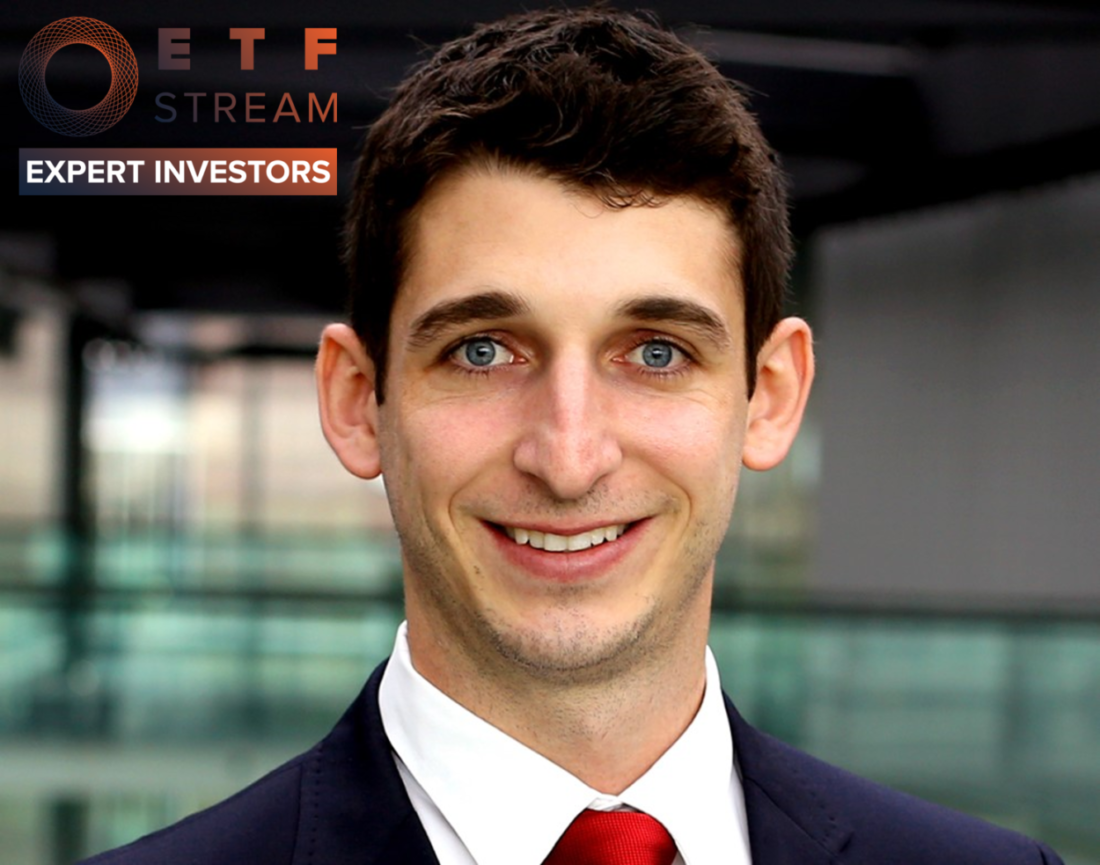Expert investors is a new series
brought to you by ETF Stream where on a fortnightly basis we interview the key individuals from across the fund selection and research space about the ETF industry.
Fund selection plays a crucial role in portfolio construction. Once the asset allocation decision has been made, these individuals need to decide how they want to be exposed, be it through a mutual fund, investment trust or ETF.
Over the years, ETFs have become an increasingly important part of any investors’ toolkit. This series will show how the key players across the fund selection space use ETFs in their portfolios while asking what more can be done by the ETF providers to help with this increasing adoption.
Next in the hot seat is Andrew Limberis, senior associate at Omba Advisory & Investments. Limberis joined Omba in 2017 and is responsible for managing discretionary portfolios for high net worth individuals. He started his career as an accountant at EY in 2012 and held a number of roles at the firm before joining Omba.
How much of your portfolio is made-up of ETFs/index funds?
100%. We only use ETFs (or ETCs) in implementing all of our strategies (plus we hold a small residual cash balance). We have eight different strategies available as part of our separate account business plus we have also recently unitized one of these strategies into a UCITS fund. Effectively what we do is we manage portfolios of ETFs.
When did you start investing in ETFs? Why then?
Omba was founded in 2017 and I joined just as we were authorised by the FCA. Our core offering has always been to invest in ETFs and individually we have each been involved in the ETF industry for much longer.
ETFs provide great building blocks for investors and we believe that packaging them as a global multi-asset solution is a great proposition for one’s savings.
Over the last couple of years, we have seen a continued increase in the adoption of ETFs, much more innovation in product offering and the continued lacklustre performance by a number of active funds.
With this market dynamic and the many geo-political risks around the world, we think that ETFs can be a great product for many investors.
Which asset classes do you tend to invest in through ETFs?
We invest in both equity and fixed income, and we also have ETCs on a radar (principally gold ETCs). Within both equites and fixed income, our investment process is global, so by exposure we are geographically diverse.
On the fixed income side, we also make use of some of the very short duration bond ETFs as a money market alternatives.
Which areas would you avoid?
We avoid inverse and leveraged ETFs. While they may be appropriate products in very specific circumstances, they do not align with our investment strategy. We also tend to avoid the more expensive ETFs where TERs become similar to active managers.
What is your methodology for selecting ETFs?
The first part of any decision that we make is purely investment driven – ETFs are just our building blocks. Considering the current macro-economic climate and our investment objective of each respective strategy, what exposure we want or need? On the fixed income side that decision is mostly down to duration, credit quality and currency exposure. On the equity side, simplistically, that can be broken down in country, sector, currency and theme (be it as varied as cloud computing or cheap value stocks).
Once we have decided which ETFs provide our desired exposure, there are many factors that we consider. Domicile and distribution type are key decisions, especially from a tax perspective.
Liquidity can also be important be depending asset class or how niche the underlying market is.
Some of the other factors that we consider are: physical vs synthetic, securities lending, total cost of ownership (including the trading bid-offer spread), valuation metrics (i.e. PE ratios), dividend yields, ESG scores and any concentration of underlying holdings.
Do you have an ETF provider preference?
Simply put, the answer is no. We are provider agnostic, which gives us the flexibility to select the most appropriate ETF. Naturally, however, some of the larger providers have more compelling offerings in terms of liquidity, costs and diversity of offering.
What ETF products would you like to see more of?
We are watching the developments in the ESG space very closely. There is a long way to go as the industry builds consensus about what is ESG, how it relates to the UN’s Sustainable Development Goals and whether the environment factors are more important than social or governance factors.
As ETF providers continue to work with asset allocators, we will hopefully see a wider product offering allowing asset allocators to express a stronger view on ESG (in both equity and fixed income markets).
It would also be great to see more sector ETFs in some of the major markets (other than the US and broad Europe). Often sector views cannot be expressed in a particular country as no sector ETFs exist.
Areas ETF providers could improve?
While some providers do these things quite well already, these are two areas of potential improvement.
Firstly, the provision of data and insights into their ETFs can be improved. For example, what are the underlying valuation metrics within the ETF, what are the factor exposures within the ETF (e.g. momentum, value etc) or how has the ETF performed during periods of market turmoil and high redemptions?
More can also be done from a capital markets perspective to help improve execution and lower costs for clients.
ETF Insight: Why ETF uptake among wealth managers remains stunted
Are clients trading in the most appropriate currency, on the best exchange (or on an RFQ platform), at the best time of day considering the underlying exposure and are clients aware of the impact of any stamp duty implications in the underlying market? Acknowledging, this responsibility does not just lie with ETF providers, and it is more difficult in Europe as compared with the US, due to the fragmented nature of trading ETFs in Europe.
Expert investors is a new series brought to you by ETF Stream where on a fortnightly basis we interview the key individuals from across the fund selection and research space about the ETF industry.
To read the previous edition of Expert Investors with Ben Seager-Scott of Tilney, click here.



